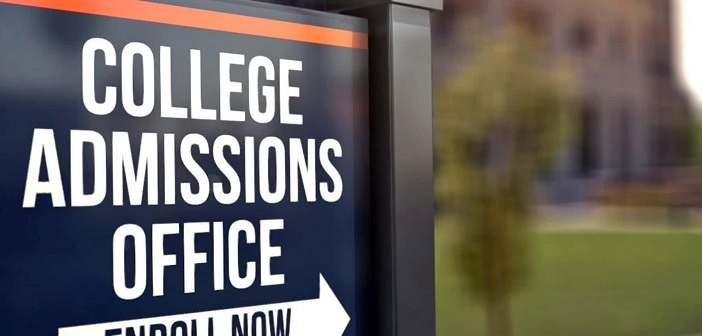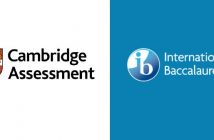When I was a student, according to my teachers, only two criteria mattered to have you considered an attractive candidate for a job in the future. One, you had to either be a lawyer, doctor, engineer, architect or involved in some field of the hard sciences. Two, you had to have a degree from abroad. Though the first criteria has mostly fallen by the wayside, it is still a commonly held belief that a degree acquired in a foreign country, especially the US, Canada, the UK, or other high profile Western European or Australian universities is worth its weight in gold in the ever increasingly competitive global employment market. Even though in the recent years, Chinese institutions have increasingly become popular with applicants globally, American and British institutions still reign supreme, being a favorite destination for not only Chinese nationals, but also expatriate families based in Beijing.

Tomer Rothschild
However, in the recent past, said institutions have gotten bad press globally, for their exorbitant prices and complicated application processes. Those wishing to successfully apply would have to jump through an endless series of bureaucratic hoops just to qualify, let alone be accepted. Or so it has been said. There are countless organizations the world over helping students make their dreams come true by assisting them to successfully enroll into their courses and foreign universities of choice. They take the guesswork out of the application process by providing concise and up-to-date information on what universities are looking for. Co-founded by Tomer Rothschild, Elite Scholars of China (ESC) strives to make Beijing students’ application and college experiences as memorable as possible.

The Elite Scholars of China team
What is your background in education and how long have you and your company been working in Beijing/ China?
I began working in university admissions in 1993, when I was a Senior Interviewer at Wesleyan University in Connecticut. I continued serving as an alumni interviewer for Wesleyan in Asia and in the USA for many years. I also served as an alumni interviewer for University of Pennsylvania’s Wharton School, where I completed my MBA. After many years of sitting across the table to interview and evaluate students on behalf of schools, I decided I wanted to sit side-by-side with students and help them in this process. In 2010, together with my business partner and wife, Stacy Palestrant, we founded our company, Elite Scholars of China (ESC). Since then, we have worked with over 1000 families to plan their educational path and successfully gain admission to the most selective universities in the US, Canada and UK.
Why should students in China consider international universities as opposed to Chinese Universities?
This of course, is a matter of subjective preference, rather than an arena of absolute truths. And yet, there are many Chinese students who are motivated to study in the USA. Currently, there are roughly 360,000 Chinese students studying in America, comprising 1/3 of all foreign students in the country. Many of them have chosen to study abroad because of their desire to widen their horizons, expose themselves to a new educational philosophy, and educate themselves for a global workplace. In terms of different educational philosophies, it is important to note that compared to China, American universities offer considerably more latitude: students do not have to decide their academic major when they apply, they are free to choose their major based on their interests, as well to take many classes outside of their academic major. In short, American universities encourage students to take charge of their own education, to explore their intellectual and academic interests, and to be the architects of their own educational destiny.
 What are some of the main countries/ universities your company works with?
What are some of the main countries/ universities your company works with?
The majority of ESC students go to study in the US, with the remaining students going to either UK or Canada.
For those who have no idea where to start, what is the first step to successful entry into an international university?
The first step is usually a high school that helps prepare its graduates attend a university overseas. While not a necessary condition for studying abroad, an international high school is a great first step since it places a student in the correct environment, with appropriate curriculum, English language training, and timeline. Fortunately, Beijing has a dizzying variety of many excellent international high schools and international programs within local high schools that can help prepare students for this pathway. Besides schooling, I believe a student should have advanced English language skills, self-awareness of why they want to study abroad in a university, and familiarity with the different requirements and processes for different schools.
What are some of the ways in which parents and students can ensure they stand out as attractive candidates to an admissions officer?
This is more critical for admission to highly selective American universities than for other schools who choose students based solely on merit or test scores, because at these very selective American institutions, “standing out” becomes an issue for several reasons. First, these schools have massive application volume. Second, the schools are not simply looking for top students with high test scores, rather they are also looking for student diversity across multiple factors, including academic areas of interest, personal background and activities, and personal qualities. Ironically, the advice that students commonly receive to “Be Yourself” is actually very accurate, although as an instructional tool it’s too vague to be helpful. In terms of “Be Yourself”, I would encourage students to engage in activities and academic and intellectual pursuits that they find intrinsically interesting, and to thoughtfully reflect on these activities and pursuits, so that they can express themselves clearly to university admission officers through interviews and application essays.
What are some of the challenges associated with admission into an international university that most applicants don’t stop to consider?
For selective American university admission, I think that while many families focus on standardized tests, a greater factor towards success may be the student’s approach to time. The student’s ability to remain organized, use time effectively by allocating time well among all the competing demands of school and activities, and not procrastinate are likely greater contributing factors to success than simply getting a higher test score. It’s a long marathon, with many things to do, so students need to pace themselves and stay focused.

Would you break down the process from start to finish in as brief a way as possible and the time each step takes to be completed?
For American universities, it looks like this – In late October of Grade 12, we have the first deadline: Early Decision (or Early Action or other variations). Around January 1 of Grade 12, the next deadline occurs: Regular Decision.
Before either of these deadlines, students must submit the following materials:
- Standardized tests (SAT or ACT)
- Language Test (TOEFL) depending on certain criteria
- SAT subject tests (usually 2 or 3 subjects, according to their choice)
- Other test scores, including AP, IB or A Level depending on their school curriculum
- Academic Transcript – the student’s school provides this for grades 9-12
- Letters of Recommendations – the student must request this from her school teachers and school counselor to complete and submit this
- Personal Statement – an essay the student writes, at a maximum length of 650 words
- Supplement Essays – each school has different requirements for these
- Activity List – this list of no more than 10 activities is like a student’s CV, and reflects their involvement in school activities and other engagements throughout high school
- Application Form – about 10 pages to fill out
- Interview – either by school’s alumni interviewer or admission officer, or by a third-party interviewing company
Most students begin working on their standardized tests some time in Grade 10, and usually finish in the beginning of Grade 12. Grade 11 is a very busy period for students in terms of testing and school activities. Finally, the essays can also take considerable time, so many students begin brainstorming those in the summer before Grade 12, and continue writing them until the deadlines.
What have been some of your company accomplishments when it comes to this line of work?
We have helped over 1000 students to successfully complete this process, so fortunately there is much of which to be proud, including having guided students to admission offers from famous schools like Harvard, Stanford, MIT and Cambridge/Oxford, as well as every one of the top 50 American universities and liberal colleges. These achievements are indeed significant. Equally satisfying are the process itself and the individual stories – witnessing a student’s growth as she explores her interest in microbiology, or helping a student articulate his budding interest in the intersection of economics, foreign aid, and political science. Helping students discover their intellectual interest, navigate this confusing process, and aiding parents who may be anxious or confused is very rewarding. Finally, because we stay in touch with our students for many years after high school, we can witness their long-term growth, incredible maturation and transformations. I have helped our alumni find jobs, apply to graduate school, and even get married – I officiated at the wedding of one of our alumni students in 2018!
What are your goals for the year 2020?
Keep on doing what we are doing at ESC! We have many families that rely on us, so I try to stay focused on my work, staying close to the needs of our families and students. Personally, I like spending time with my wife and three children. Finally, I have become addicted to the shocking stimulation of winter swims 冬泳 at Houhai, so I want to do more of these in 2020!
Photos: Courtesy of ESC




